A man I work with recently asked if I had received an email from another coworker. I told him no, I had not. He said this, “I’m not calling you a liar, but …”
I cut him off and said, “Yes, you are! You cannot say you are not calling me a liar, and then proceed to challenge the truthfulness of what I just said. The word ‘but’ negates everything that came before it.” I offered to let him view my email account just so he could see that I was not lying. He declined and left my office.
The word “but” is an amazing word. We use it all the time to say contradictory things.
In fact, almost any time you hear someone say “I’m not ________, but …” you can almost guarantee that whatever follows the “but” will be the exact opposite of what preceded it.
The phrase “I’m not a racist, but …” will always be followed with a racist statement.
The phrase “I don’t hate gays, but …” will always be followed with a homophobic statement.
The phrase “I know God loves everybody, but …” will always be followed by a statement that maybe God doesn’t love everybody.
The phrase “I hope this doesn’t come across as heartless, but … ” will always be followed by a statement that is heartless.
One phrase I hear a lot from people is this one:
“I believe in grace, but …”
Such a statement will always be followed by a statement which shows the person does not believe the first thing about grace.
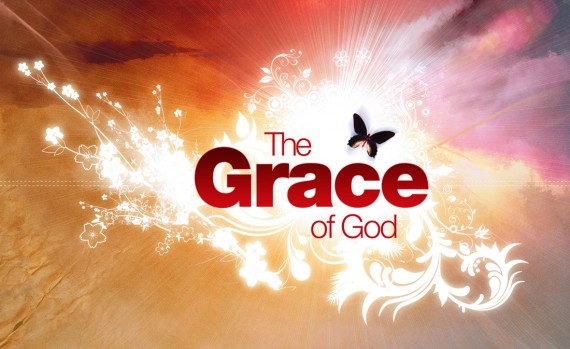
Grace has no but!
Pastors and Christian Bible teachers are notorious for giving confusing messages about grace. We preach that God loves people unconditionally, that Jesus will never leave us or forsake us, that we can come to God just as we are, and that nothing can separate us from God’s love. This is well and good.
Then we often follow up this teaching with the impression that maybe there are conditions to God’s infinite love, that maybe Jesus will forsake us, and that God doesn’t want us exactly as we are, and that there are some things that will separate us from the love of God.
I call this adding “buts” to grace.
This occurs whenever we say something like,
“Grace is free, but…”
“God forgives all our sins, but…”
“God loves you unconditionally, but…”
“God will never leave you nor forsake you, but…”
“Eternal life is by faith alone, but…”
You see?
These “buts” completely negate whatever came before it.
So stop adding buts to your theology.
Grace has no but, and neither does love, mercy, and forgiveness.
Those who add buts to grace do not know God or His grace. There are no conditions or limits to grace. Grace is infinite and free. Period.




 Western theology has committed a terrible disservice to this imagery of a potter and clay by making it seem as if God is a deterministic puppet master up in heaven pulling the strings of people and nations down here on earth.
Western theology has committed a terrible disservice to this imagery of a potter and clay by making it seem as if God is a deterministic puppet master up in heaven pulling the strings of people and nations down here on earth.
 And what makes one vessel clean or unclean? As H. H. Rowley pointed out above, God allows humans to determine what kind of vessel they will be, and then He uses those who have made themselves vessels of dishonor.
And what makes one vessel clean or unclean? As H. H. Rowley pointed out above, God allows humans to determine what kind of vessel they will be, and then He uses those who have made themselves vessels of dishonor.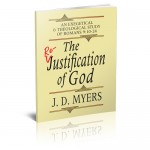
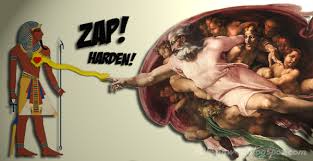 In Romans 9, Paul writes about the hardening of Pharaoh’s heart for the purposes of making God’s glory known. This seems rather harsh to some.
In Romans 9, Paul writes about the hardening of Pharaoh’s heart for the purposes of making God’s glory known. This seems rather harsh to some. But in response to this, Calvinists argue back that although the text says that Pharaoh hardened his own heart before God hardened it, before Moses even went to speak to Pharaoh, God told Him that He planned to harden Pharaoh’s heart (Exod 4:21; 7:3).
But in response to this, Calvinists argue back that although the text says that Pharaoh hardened his own heart before God hardened it, before Moses even went to speak to Pharaoh, God told Him that He planned to harden Pharaoh’s heart (Exod 4:21; 7:3). The issue is not about who hardened Pharaoh’s heart first—though that is where most of the ink has been spilled—but rather about what it means for Pharaoh’s heart to be hardened.
The issue is not about who hardened Pharaoh’s heart first—though that is where most of the ink has been spilled—but rather about what it means for Pharaoh’s heart to be hardened. Pharaoh’s eternal destiny is not under discussion in Exodus or in Romans, and so Pharaoh’s heart can be hardened so that God’s purposes are achieved, while still leaving plenty of room for Pharaoh to believe in God’s promises and become one of God’s people.
Pharaoh’s eternal destiny is not under discussion in Exodus or in Romans, and so Pharaoh’s heart can be hardened so that God’s purposes are achieved, while still leaving plenty of room for Pharaoh to believe in God’s promises and become one of God’s people.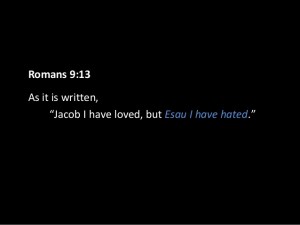 Paul writes a difficult statement in Romans 9:13:
Paul writes a difficult statement in Romans 9:13: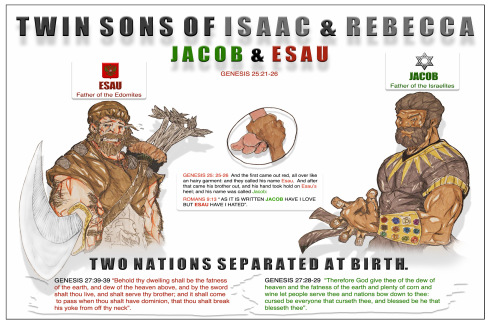
 How can we choose between the two views above? Does God hate Esau and Edom, or does He simply love Edom less than He loves Israel?
How can we choose between the two views above? Does God hate Esau and Edom, or does He simply love Edom less than He loves Israel?

